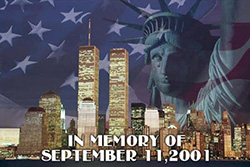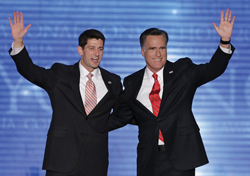Arab/Muslim Relations With the United States Continue to Be a Struggle
 The United States continues to find itself at crossroads with Arab and Muslim relations 11 years after the September 11 attacks and leaves the better majority of individuals thinking: can this all be just a dream?
The United States continues to find itself at crossroads with Arab and Muslim relations 11 years after the September 11 attacks and leaves the better majority of individuals thinking: can this all be just a dream?
Dazed and startled at the dizzying height of its power, the United States responded to the attacks by changing itself.
Policy changes continued throughout the past decade and singled out Arab and Muslim communities as groups of interest. There is always a group that suffers as consequence where emotional strife negates a standard for human etiquette, as in any period of war.
Dr. Frances Trotman, professor of psychology at the University, discussed his take on the relationship between the United States and Arab and Muslim communities.
“Many have begun to get past it, while others hold on to the animosity, often reflecting some ignorance and some scapegoating because of other difficulties. A complete answer that is more than just a generalization would require volumes to try to attempt a comprehensive explanation.”
The larger question at stake identifies the relations between the United States and Arab and Muslim communities during the past 11 years and if time has had any positive change on their relationship.
To begin, the USA PATRIOT Act was established in October 2001, and tapped into civil liberties while encouraging, whether intentional or unintentional, ethnic and religious stereotypes. Its original purpose was to “deter and punish terrorist acts in the United States and around the world, to enhance law enforcement investigatory tools and other purposes.”
Dr. Louise Cainkar, Sociologist at the Department of Social and Cultural Services at Marquette University discussed 20 additional acts were established after the USA PATRIOT
Act. Of the 20 acts, the State Department issued a 20 day mandatory hold on all nonimmigrant visa applications. Although all applicants were subjected to standard security clearances, stronger emphases were imposed on certain countries and regions.
The following month, the Justice Department established plans to interview approximately 5,000 nonimmigrant visa workers from Arab and Muslim countries since January 1, 2001. A second round of interrogations took place with another 3,000 nonimmigrant visa workers. All were questioned regarding their knowledge of terrorist activities.
The Justice Department also authorized local police departments to interview Arab residents and their knowledge of any terrorist activities, allowing police to become monitors of these residents instead of their protectors.
Along with domestic policies, Dr. Christopher DeRosa, associate professor of history at the University, gave a progressive take on the international development of Arab and Muslim relations with the United States since September 11.
“Several Arab nations contain the most plentiful and accessible proven oil reserves in the world [and] because it is relatively inexpensive to extract oil from these reserves, compared to other types of energy production, Arab states continue to figure heavily in the economic lifeblood of the United States.” Dr. DeRosa continued, “However, the U.S. military intervention and subsequent scale-back in Iraq from 2003 to 2011, the nosedive of the U.S. economy in 2008, the long-standing Israeli alliance and increased competition for oil from Asian markets all combine to reduce U.S. leverage over the Arab states. The U.S., having invested heavily in relations with antidemocratic regimes to order to protect its access to cheap oil, was also rather wrong-footed by the Arab Spring.”
Governments that condone antidemocratic regimes only legitimize. Eleven years ago terrorists attacked the World Trade Center, Pentagon. Over 3,000 people died that day. their citizens’ stereotypical behaviors.
Although there have been similar instances of stereotyping in earlier war periods, such as the Russians during the Cold War and the Japanese during World War II, Evelyn Alsultany, University of Michigan assistant professor of American Culture, gave her reflection on the changing portrayals of Arab and Muslim individuals.
Alsultany discussed changing present and future stereotypes of the Arab and Muslim communities.
She discussed how there were many instances examples of stereotyping behaviors: the war in Iraq and Afghanistan, detaining and deporting Arab and Muslim individuals and Guantanamo Bay.
However, there have been certain instances where the representation of stereotyping behavior takes on a different aptitude in the American mindset. Individuals acknowledge that the behavior is wrong, yet insist that it’s in their best interest for national security to continue the discriminatory behavior.
Alsultany went on to explain how, “Arab and Muslim characters, who are every day people, [need to be viewed as] characters [that are] not limited to being good or bad in relationship to terrorism, but rather just being diverse human beings with diverse experiences.”
Progression for present and future relations is only as prominent as a government deems it.
“I don’t expect challenges for the U.S. in relations with Arab nations to abate, but I think the best American long-term approach would be: 1) be an honest broker in the Palestinian-Israeli conflict, and 2) an investment in clean alternative energy solutions at home–at least cleaner ones than drilling recklessly for inaccessible, unproven oil reserves,” Derosa concluded.
PHOTO TAKEN from ubercomments.com


